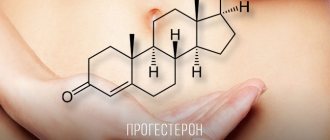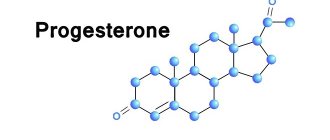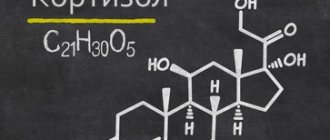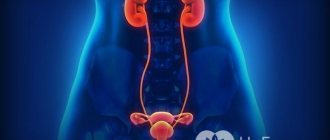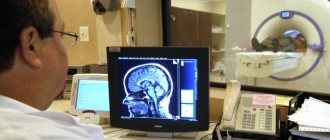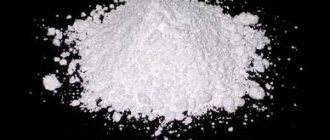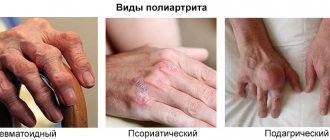Free T3 is a hormone important for the functioning of the human body, which is produced in the endocrine gland, called the thyroid gland. The full name of this substance is “triiodothyronine,” which reflects the number of iodine atoms contained in one molecule.
Free T3 is a hormone important for the functioning of the human body, which is produced in the endocrine gland, called the thyroid gland.
Characteristics of the hormone T3
Triiodothyronine acts as one of the most active hormones of the thyroid gland. It is formed during the breakdown of the T4 hormone with the separation of one iodine atom from the last one. The splitting of an atom is a grenade effect. This means that the previously not particularly active hormone T4 reaches its peak activity in the composition of triiodothyronine.
This hormone affects and regulates energy metabolic processes in the human body. It is responsible for the breakdown of energy. After breakdown, through the hormone T3, energy is directed to the organ where it is needed. Triiodothyronine improves nerve patency and is also an important element in activating metabolic processes in bone tissue and the cardiac system.
The main functions of the hormone are the following:
- Vitamin A synthesis;
- Stimulation of the launch of the cell regeneration process;
- Creating conditions for normal thermoregulation of the body;
- Removing excess cholesterol;
- Redistribution of oxygen within the body;
- Creating a favorable environment for good mental activity;
- Stimulation of normal functioning of the cardiovascular system.
Possible complications
An excess of the T3 hormone can lead to a variety of consequences affecting any system of the body.
The most unpleasant of them:
- thyrotoxic hepatosis (dystrophic changes in liver cellular tissue, provoked by impaired lipid metabolism);
- heart failure (impaired myocardial function, its dystrophic changes, accompanied by congestion);
- hypokalemic paralysis (impaired muscle tone caused by potassium deficiency);
- atrial fibrillation (a cardiac rhythm resulting from chaotic contraction of the atria).
A high level of free T3 leads to constant irritability, which disrupts sleep. Patients often feel hungry, but there is no loss of appetite, and weight rapidly begins to fall. Symptoms of elevated free T3 hormone are specific, however, they can manifest themselves in a mild form. In women and men, the signs of the pathological condition are largely similar.
If you notice the first alarming symptoms, you should immediately consult a doctor and undergo a full examination. Timeliness is an important factor in the treatment of endocrine pathologies, because they often lead to disruption of other vital structures of the body.
Types of T3 hormone
The T3 hormone can be formed in two ways:
- Due to the breakdown of the T4 hormone;
- Through production in the thyroid gland.
The hormone that is formed by gland cells contains all the components of the full-fledged T3 hormone. Once in the bloodstream, it begins to interact with protein elements. This hormone is redistributed through the vessels to the desired organ or tissue where its action is required. However, it is found in a small proportion in the blood (there is no connection with proteins). This hormone is commonly called “free T3 hormone.”
By general hormone we mean one that is free in connection with one that is bound to proteins. The concentration indicator is used in tests for the condition of the thyroid gland, when the result for free T3 was false positive.
When to see a doctor
An endocrinologist monitors patients with endocrine disorders. But, given that elevated T3 hormone is a nonspecific sign, it can mean any disorders and failures in various systems and structures of the body.
To clarify the diagnosis, additional diagnostics are required, which includes both laboratory tests and instrumental diagnostic measures.
Patients usually go to the doctor if they have any noticeable signs of illness. But often pathological changes are diagnosed during a routine preventive examination.
Sometimes endocrine diseases occur with a blurred clinical picture, but they can still be noticed by characteristic signs:
- increased sweating;
- bulging eyeballs;
- arrhythmia, tachycardia, shortness of breath;
- heart rhythm disturbance;
- dry mouth;
- peeling of the skin;
- constant feeling of thirst;
- regular excessive fatigue;
- muscle weakness;
- headache;
- irritability, nervousness.
Even in a mild form, such symptoms can be noticed. Therefore, doctors always advise you to listen more carefully to your condition and, at the first alarming symptoms, contact a specialist.
T3 hormone test
To identify processes occurring in the human body that negatively affect the functioning of the thyroid gland, the endocrinologist prescribes the patient to donate blood for three hormones (T3, TSH, T4). The results of tests for this hormone are considered the most necessary, due to the fact that they create conditions for minimizing errors in the analysis of the other two.
In a situation where a patient has a nodular toxic goiter, the nodes that function independently work to produce triiodothyronine. Its value can be increased in other diseases (diffuse toxic goiter, Graves' disease, Graves' disease). In situations where the test result reflects a large amount of the hormone exceeding the normal level, a diagnosis of T3 toxicosis in the body is made. Such a diagnosis is difficult to cure and manifests itself with brighter signs than with an increased concentration of T4.
Tests are prescribed to determine hormone levels in the following cases:
- Sleep disturbance;
- Weakness and fatigue;
- Increased irritability and excitability;
- Increased sweating;
- Unreasonable weight change;
- Menstrual irregularities;
- Limb cramps and swelling.
An analysis for the determination of the T3 hormone involves taking venous blood from the patient. To obtain the most reliable result, you must follow a number of rules:
- It is necessary to donate blood on an empty stomach;
- You should stop taking medications that may contain thyroid hormones a month before taking the test;
- Stop playing sports five to six days before donating blood;
- Avoid drinking alcohol and smoking;
- Avoid overheating or hypothermia of the body; Meals should be completed 8 hours before the test.
In addition, once the results of the study are obtained, they must be interpreted taking into account the quality of the equipment on which the analysis was carried out. The norm is based on the data recorded on the laboratory form (configured in a special program on the computer). In cases where hormone levels are described not on a computer, but by the doctor himself, it is generally accepted that the test was not carried out correctly and the necessary reagents or equipment were not used.
Data from laboratory forms establish normal hormone concentrations ranging from 2.6 to 5.7 pmol/l.
The levels of the hormone in the blood of a healthy person differ depending on a number of indicators:
- Sexual characteristics (women have lower hormone levels than men);
- Patient's age;
- Situations when the analysis was carried out (for example, in winter the concentration of the indicator reaches its highest value);
- Physical exercise, professional sports.
However, the normal level of this hormone in a child differs from that of an adult. For adolescents, data differ by gender (for girls aged 16-17 years it ranges from 1.6 to 3.1 pmol/l, for boys from 1.8 to 3.4). In children of primary school age (6-8 years), the hormone level in girls is in the range of 2.3-4.1, in boys – 1.9 to 4.0.
Indications for the study
In assessing the state of the endocrine system, blood testing for the concentration of free T3 is very important.
Pathologies that are indications for referral for analysis:
- iodine deficiency;
- endemic goiter and other types of goiter;
- thyrotoxicosis;
- thyroid oncology;
- Graves' disease;
- toxic adenoma;
- HIV infection;
- T3 thyrotoxicosis.
In order to clarify the diagnosis, determine the severity of the disease and the presence of concomitant pathologies, doctors prescribe a study for the following problems:
- infertility;
- male impotence;
- arrhythmia;
- amenorrhea;
- delayed sexual development in adolescents;
- mental retardation in adolescents;
- drop in libido;
- disruptions of the menstrual cycle;
- hair loss in the absence of menstrual irregularities.
In addition, causeless frigidity in women and radioactive iodine therapy can be reasons for diagnosis. The initial examination of the patient and referral for research is carried out by an endocrinologist. If necessary, the patient is advised to consult other specialists.
What does elevated T3 hormone levels mean?
Problems that arise in the thyroid gland are associated with a disturbance in the production of the hormone T3, namely its increase. In this case, the patient may not notice the deterioration of his condition for a long time.
Due to the fact that triiodothyronine is considered an active hormone, an increase in its level causes the following deviations in the general condition of a person:
- Irritability arises, the person becomes more nervous and furious towards others;
- There may be a feeling of constant fatigue and weakness of the body (endocrinologists call this condition as irritable weakness);
- One of the sure symptoms of an increase in T3 hormone is trembling in the fingers;
- The heartbeat and pulse rate also increase, and other disturbances in the functioning of the cardiovascular system may be observed. For example, extrasystole may occur, a condition that is associated with an increase in heart rate when a person is at rest; Weight loss may be noted.
With a high value of triiodothyronine, the development of the following diseases is often observed:
- Pituitary adenoma;
- Myeloma;
- Graves' disease;
- Disturbances in the functioning of the kidneys and liver;
- Pendred's syndrome and others.
Since studies conducted to determine deviations in hormone levels may be false positive, the endocrinologist may prescribe additional tests (to determine TSH and T4 levels). When the TSH level is normal, and the T3 level is exceeded, violations in the interpretation of the results are noted due to problems in the laboratory. Also, the results will be false if TSH and T3 are elevated, but T4 is normal. If unreliable data is received, the analysis must be performed again.
The analysis will be correct if there is a connection between a decrease in TSH and an increase in T4. In this situation, when the concentration of the hormone T3 is higher than normal, the correct result of the study is considered.
There are cases when tests are taken several times, but the results remain ambiguous. Then you need to get additional advice from a doctor who will give recommendations on the current situation.
What does a change in concentration indicate?
High and low concentrations of the free T3 fraction indicate pathologies of the thyroid gland or pituitary gland, which stimulates its work. To determine the reasons for changes in hormonal levels, women are referred for further examination.
Level reduction
Low triiodothyronine levels in 80% of cases are associated with hypofunction of the thyroid gland. Factors that provoke insufficient hormone synthesis include:
- hypothyroidism;
- inflammation of the thyroid gland;
- adrenal insufficiency;
- systemic diseases;
- subtotal thyroidectomy;
- anorexia;
- abuse of low-calorie diets;
- abrupt withdrawal of hormonal contraceptives;
- late stages of pregnancy.
The analysis results are distorted due to improper preparation for the blood sampling procedure. Therefore, if a woman does not have signs of hypothyroidism, a repeat test is performed. Obvious endocrine disorders associated with a decrease in T3 levels are indicated by:
- swelling of the face;
- yellowness of the skin;
- muscle pain;
- fast fatiguability;
- decrease in temperature;
- dry skin;
- deterioration of hearing acuity;
- weight gain, etc.
Women complain of changes in mood, depression, and apathy. With a persistent decrease in triiodothyronine, memory and the ability to solve complex problems deteriorate.
Increased hormone levels
High levels of thyroid hormone are often associated with the development of goiter due to iodine deficiency. An enlarged thyroid gland leads to increased synthesis of iodine-containing hormones - tri- and tetraiodothyronine.
An increase in free T3 stimulates the use of medications - Tamoxifen, Clofibrate, Methadone, Terbutaline. Therefore, before taking tests, you need to stop taking them.
Possible reasons for increased T3 levels in women include:
- hyperthyroidism (Graves disease);
- iodine deficiency conditions;
- Pendred's syndrome;
- malignant tumors in the thyroid gland;
- chronic liver and kidney diseases;
- resistance to thyroid drugs;
- postpartum disorders;
- radioactive iodine therapy.
6 out of 10 women with high triiodothyronine are diagnosed with hyperthyroidism. It manifests itself with the following symptoms:
- increased excitability;
- fast speech;
- protrusion of eyeballs;
- tachycardia;
- heart failure;
- emotional imbalance;
- excessive sweating;
- loose stools;
- elevated temperature.
When interpreting the results of hormonal analysis, seasonal fluctuations in thyroid hormones should be taken into account. T3 in women reaches peak concentrations in the autumn-winter period, and by spring-summer it drops to the minimum permissible values.
Low T3 hormone levels
The concentration of triiodothyronine decreases in situations where there is a disruption in the production of hormones produced by the thyroid gland. In this case, diseases such as:
- Hashimoto's thyroiditis. This disease is due to the fact that the patient’s immunity suppresses a number of thyroid cells. Subsequently, they cannot recover, cease to function and participate in the process of hormone production;
- Hypothyroidism occurs due to the use of various medications that are prescribed to eliminate diffuse and nodular toxic goiter. These include such drugs as Propicil, Tyrosol, Mercazolil.
In addition, an insufficient level of the T3 hormone in the patient’s blood may indicate the presence of other diseases in the body:
- Development of an autoimmune disease in the body;
- The emergence of anorexia nervosa;
- Pathologies during pregnancy.
The concentration of the T3 hormone can be reduced in the human body when part or all of the thyroid gland has been surgically removed. Also, when using radioactive iodine during treatment for diffuse toxic goiter, a decrease in triiodothyronine may be observed. When using a number of drugs that contain large amounts of iodine, a decrease in hormone production may also be observed. These drugs include Cordarone, Amiodarone and others.
It should be remembered that the hormone cannot decrease for no reason and in a chaotic manner. The first hormone whose value begins to decrease is T4, followed by a decrease in triiodothyronine. This is related to the functioning of the human body. When T3 decreases, the body tries to convert the T4 hormone into triiodothyronine, since the latter is considered the most active. Endocrinologists associate this event with an increase in the peripheral conversion of T4 to T3. This process makes the disease of hypothyroidism less severe, and taking it into account, errors in laboratory results can be predicted.
A low T3 level is not always considered a pathology. This can occur when a woman is carrying a child in the 3rd trimester of pregnancy.
Triiodothyronine during pregnancy
During pregnancy, T3 levels may exceed acceptable limits, but this does not indicate pathology in all cases. When the free hormone is elevated, this may indicate a variant of the normal concentration for the initial stage of pregnancy. And not in all situations such a condition requires treatment. Triiodothyronine levels may recover on their own by the second trimester.
If the concentration of T3 is low, this always indicates a lack of thyroid hormone, therefore, in order to avoid harm to the unborn baby as a result of its deficiency, it is necessary to compensate for its deficiency with synthetic drugs.
It makes no sense to determine the total hormone level in a pregnant woman, since during this period protein synthesis increases significantly, thereby they can bind molecules and slightly inflate test results.
A lack of thyroid hormones is a serious disorder. A severe form of the disease can cause “cretinism” in a child and “myxedema” in an adult patient.
But the peripheral distribution of hormones makes it possible to prevent the development of such diseases if complex therapy was started in a timely manner. Only after high-quality diagnostics performed in laboratory conditions, endocrinologists prescribe appropriate adequate treatment.
How to influence the production of the T3 hormone
To restore the level of the T3 hormone, conservative therapeutic treatment is used. In case of low levels of triiodothyronine in the body, the endocrinologist prescribes an analogue of the hormone that is produced by the thyroid gland (special medications).
In order to reduce the production of the T3 hormone, antithyroid drugs are used. In such situations, it is necessary to exclude treatment without the supervision of a specialist. In the presence of tumors of various natures, surgical intervention is used. Doctors eliminate the tumor, which affects excessive production of the hormone or its decrease.
In order to prevent pathological development of the thyroid gland, it is necessary to closely monitor your health, conduct preventive examinations with a doctor, and undergo appropriate tests.
Decoding the results
After receiving the analysis results, only the treating endocrinologist is involved in deciphering them. You can only determine on your own whether the hormone level is increased and by how much. Any laboratory produces results indicating the norm for a certain group of people, taking into account age. However, only a specialist can make an accurate diagnosis and prescribe treatment.
Presumably, a high concentration of free T3 can be observed in disorders of the nervous system, cardiovascular, endocrine, reproductive, digestive, urinary and immune. To clarify the diagnosis, it is necessary to collect an anamnesis and the results of additional studies.
